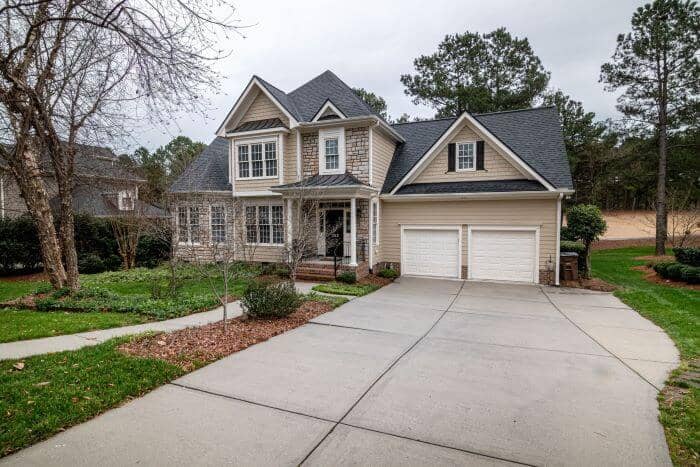House hacking is not only one of the best decisions I’ve made as a new real estate investor but it’s one of the best financial decisions I ever made.
It’s the reason I became a landlord several years ago.
Between saving money on housing expenses (due to rental income) and building equity in a rental property (via the mortgage payment) – I’ve enjoyed the entire process.
Having people who can split the mortgage payment and home maintenance expenses with you is amazing for achieving some level of financial independence.
And, if done as I recommend in this guide, those “people” will have a separate entrance and a completely different living space than you. Because no one really wants to share a bathroom.
Table of Contents
What is house hacking?
House hacking is when you rent or own a house, and rent out a portion of it to help pay some (or all) of your housing expenses.
That’s it.
Despite the “house hacking” name, you don’t need technology or computer knowledge to experience house hacking.
Recommend reading: What Does House Hacking Mean?
Why house hack?

The benefits of house hacking include the following:
- Save money
- Rental income/cash flow
- Tax benefits if you own the property since it’s your “primary residence” (hire a CPA when house hacking to learn the tax benefits for your specific situation)
- Tenants pay part of your monthly mortgage payment (if you own the rental property)
- The rental income helps you qualify for more loans (if you own the rental property) – which can help you purchase more investment property sooner (this is a benefit I discussed when answering the question: Should I Report Rent For My House Hack?)
- Gain property management and rental property experience. This can be extremely helpful if you plan on real estate investing in the future
- Easier to purchase and manage a multifamily property as a new real estate investor
Recommded Reading: House Hacking Benefits
Why avoid house hacking?
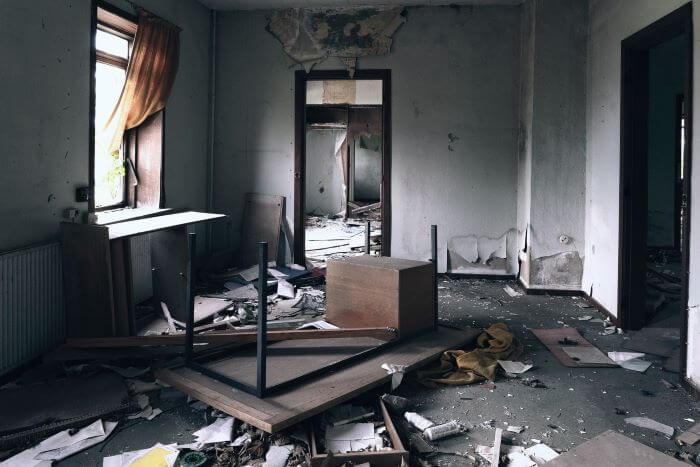
There are pros and cons to having rental property and, if you’re house hacking, you’re basically running a rental business.
Here are some reasons to avoid house hacking:
- You now have similar responsibilities of a property owner, even if you don’t own the rental property (you’ll need some kind of lease agreement and become the “voice” of your “tenants” when talking to your landlord)
- You must pay income taxes yearly. The net operating income from the monthly cash flow needs to be reported (because it’s essentially a business).
- You may lose some of your privacy (and possibly lose safety) if you’re renting rooms out of your house instead of renting out one unit.
- You’re responsible for your tenants following (or not following) the local laws or rules you signed in your lease.
Recommend reading: Why You Shouldn't House Hack
How to buy your first house hack property?
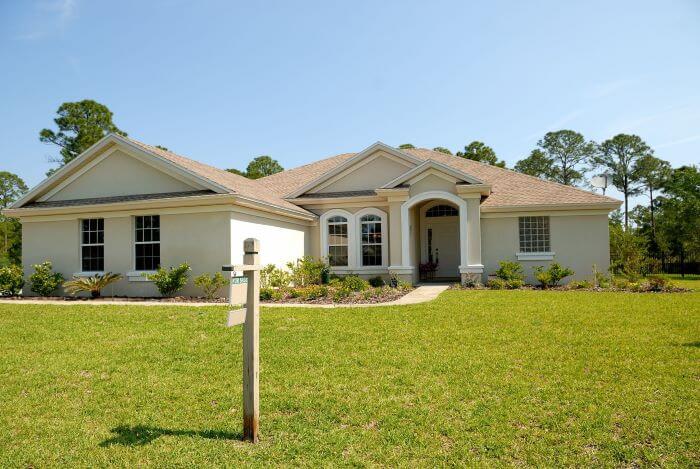
In order to receive all of the benefits of house hacking, you have to own the property.
Property owners have the most control because it’s their “primary residence”, they still generate income from rent, and they’re building equity from paying down the loan.
Recommended Reading: What Kind Of Home Is Best For House Hacking
Now, buying a property for house hacking can be difficult depending on the housing market. You’re competing with both homeowners and real estate investors that have a real estate investing strategy.
However, thanks to the house hacking strategy, homes (or multifamily properties) that would normally be too much for homeowners and not profitable enough for real estate investors – can be lucrative for you.
The process:
- Get pre-approved for a home loan (Conventional loans, FHA loans, VA loans, Etc..)
- Find a house that works/you like (Some loans allow you to finance properties up to four units without )
- Submit an offer on the house
- Once your offer is accepted, perform inspections and do your due diligence
- Finish home loan application
- If inspections go well, close on the home
- Take possession of your new property
Recommended Reading: How To Buy Your First House Hack
How to analyze a house hacking deal

Analyzing your house hacking deal can be done with a simple analysis (less accurate) and a complicated analysis (more accurate). But, at the end of the day – your goal is to identify if the house hack you want to purchase is profitable enough to make the work worth it.
As a beginner, you’re not going to be able to confidently analyze a house hack – you don’t have the experience. However, what you can do is analyze the potential property enough to reduce the risk of making a bad decision.
Thankfully, when it comes to house hacking – there’s a lot of flexibility and room for error. Your analysis doesn’t have to be perfect in order for house hacking to work out for you.
So, while it’s smart to analyze your house hacking deal as much as you can – don’t get so caught up in the process that you forget to take action (aka Analysis Paralysis)
With that said, the main areas to focus on when analyzing your house hack are:
- Estimate how much rental income the property can generate
- Estimate your fixed monthly expenses
- Estimate how much money to set aside for savings every month
Those 3 areas are the core of analyzing a house hacking deal. The primary difference between making this analysis simple and making this analysis complicated is the level of accuracy you’d like in your estimates.
If you happen to find a really good house hacking deal, you may not need to make the analysis complicated because even a simple analysis can show you that it’s a great deal.
But, when dealing with properties that are less certain, a complicated analysis allows you to see the details that could be the difference between profiting and losing money.
Recommended Reading: How To Analyze A House Hacking Deal
Some house hacking mistakes to avoid
One of the most important things to understand when house hacking as a beginner is that you’re going to make mistakes.
Mistakes are part of the process.
However, the goal of this section is to help you avoid some of the more expensive mistakes that can give you an overall negative experience.
Recommended Reading: How Much Cash Reserves Is Needed For Rental Property?
Avoid major foundation issues
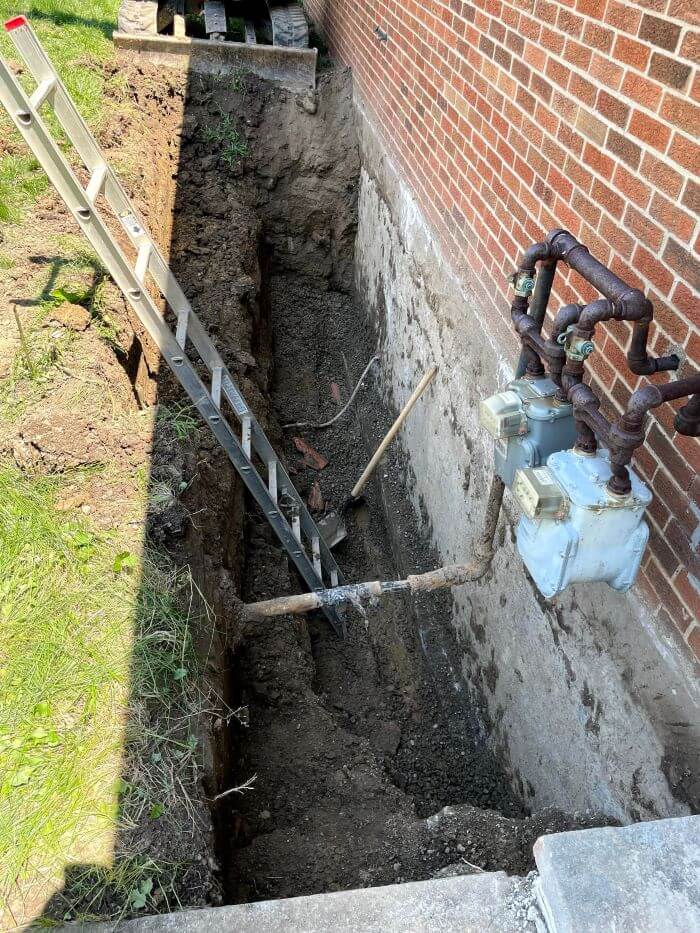
As a beginner, you don’t want to have to deal with any foundation issues.
Foundation work is expensive unless you DIY and, as a beginner without construction experience, you probably won’t have the ability to DIY.
Foundation work can also be time-consuming and intrusive to your life and your tenants.
Advice for avoiding major foundation issues
As you may already know, homes are built differently throughout the country.
So I’m not going to be able to give you specific details on how to avoid them all in this short post.
What I will recommend is calling a few foundation repair companies in your area, telling them you’re looking at purchasing a home, and asking them about the most common foundation issues in your area.
Foundation issues in my area
For example, in my area, a lot of the homes are older and have basements due to the foundation’s footer needing to be below the frost line.
When a lot of homes were built, the block wall foundation was backfilled with a lot of the native soil (which is heavy, expanding clay). Over time, the soil causes the foundation walls to crack, bow, and ultimately fail.
However, before the walls bow and fail – they crack and leave you with a wet basement as water seeps through.
Repairing and waterproofing a cracked foundation in my area cost somewhere between $250-$400 per linear foot. Which, for an average-sized house, could cost tens of thousands of dollars.
That could delay any benefit you’d receive from house hacking for quite some time.
Trust me, after fixing foundation cracks and waterproofing one 50′ wall of my house hack DIY, you want to avoid this type of work unless you know you can handle it.
Avoid 1-car driveways
House hacking requires you to share your property with others. If you choose a property with only a one-car driveway, there will be times when you or your tenants will be blocking the other from exiting.
This will continue to cause an inconvenience to all parties involved unless you extend the driveway.
Avoid houses with big yards
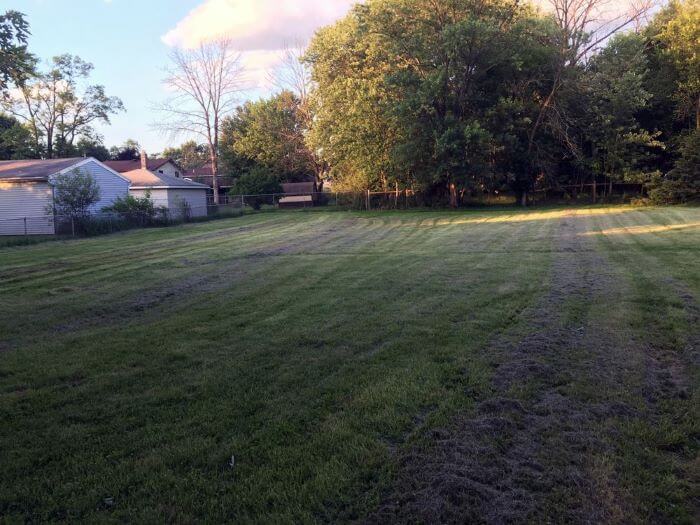
Although big yards are nice, when it comes to house hacking – you’re going to want to keep your maintenance as low as possible.
This means choosing a house with a small to moderate yard that’s similar to other yards in the neighborhood will minimize unnecessary tools.
I made the mistake of house-hacking a property with a large yard and the upkeep is a lot more expensive than if the yard was small (thankfully I could deduct some of these expenses while house hacking).
A small yard won’t need many tools – you can get away with:
- Lawnmower ($300)
- Trimmer ($150)
- Edger ($100)
- Blower ($100)
If you have a big yard, the cost of the equipment you’ll need goes up:
- Riding lawn mower ($1500+)
- Trimmer ($300)
- Edger ($100)
- Blower ($300)
Avoid homes with only one bathroom
Sharing one bathroom is hard enough to do with family and friends but sharing the bathroom in a long-term rental is extremely difficult.
If possible, find a home with 2 bathrooms or a multifamily property that will give you your own unit.
Guidelines for maintaining your property
Maintaining your property is both important and never-ending. It allows you to maintain/increase your property value while also being attractive to potential tenants.
Due to the number of repairs that can be needed in a house, instead of giving you specific tips, I’m going to give you a few guidelines on how to maintain your property:
- Repair things that cause additional damage to the house or inhabitants immediately. This covers things like plumbing, electrical, roofing, gutters, foundation, etc.
- Repair things that cause an inconvenience to your tenant ASAP.
- Repair things that cause an inconvenience to you soon.
- Improve things that work eventually.
House hacking single-family vs. multifamily properties
I prefer a multifamily property over a single-family property and here’s why:
With a single-family house, you need a house with multiple bedrooms, you have to live in close quarters with a stranger, and share a lot of common areas.
When possible, I prefer to have my own space. (which multi-unit properties provide).
In addition to that, renting out a unit in a multifamily property will attract a longer-term tenant compared to a roommate in a single-family home.
If you’re comfortable living with strangers as roommates, a single-family tends to have a much lower purchase price than a multifamily property in most cities.
Single-family homes typically have more inventory available for purchase compared to multi-family homes, and less experienced competition as well (aka investors).
Allowing you to get in the “game” sooner.
Pros and cons of house hacking a single-family:
Here’s a quick list of some of the pros and cons that come with house hacking a single-family home:
| Pros of house hacking single-family property | Cons of house hacking a single-family property |
|---|---|
| Less expensive to purchase (typically) | Renting rooms tends to attract shorter-term tenants |
| Better financing options available | Share common areas with your tenant and their family/friends |
| More inventory to choose from | Moving out and renting your room is possible but more work than renting the whole house to one family – possibly lowering your rental income. |
| Less maintenance due to only having 1 furnace, AC, water heater, etc… | |
| Selling is more about the look of the home versus how profitable it is |
Pros and cons of a house hacking a multifamily:
Here’s a quick list of some of the pros and cons that come with house hacking a multi-family home:
| Pros of house hacking a multifamily property | Cons of house hacking a multifamily property |
|---|---|
| You’ll have your own space and won’t have to share common areas | There’s more maintenance due to each unit having a furnace, AC, water heater, etc… |
| Renting out one unit (as a whole) attracts longer-term tenants | More expensive to purchase than a single-family home |
| You’ll be able to rent out your unit when you move out as well (allowing you to collect rent from 2 units) | Lots of competition when buying due to experienced and new real estate investors |
| Regardless of how the real estate market is doing, investors will almost always be willing to purchase a multi-family home | Less inventory available to choose from |
How to afford your first house hack:

Before I purchased my first house hack, my #1 excuse for not owning property sooner was that I didn’t have enough money.
I thought that in order to own property, I’d need money to have 20% down, do any small fixes or renovations, and have enough savings to cover any major problems.
I was wrong.
I mean, the more money you have – the better off you’ll be. But you don’t need a lot of money to afford a house hack.
Utilize housing/lending programs
Knowing what loans to use for house hacking can influence if a property looks profitable or isn’t worth it at all (on paper at least).
With loan programs (I.e FHA loans, VA loans, USDA loans, etc..), you can get away with putting as little as 0% down.
This can leave you with a PMI (or mortgage insurance premium – MIP) payment but as long as this is factored into your house hacking calculations – it’s not a big deal.
Plus, you can always refinance later (including a cash-out refinance) and remove the PMI/MIP from your mortgage.
In my area, the affordable multi-families are old and not well taken care of. This makes it hard to finance them via FHA due to the inspections and requirements. However, there are housing programs that you can utilize.
When buying my duplex for house hacking, I used a program that allowed me to put 5% down on a conventional loan versus a traditional conventional loan (with this lender) wanting 25% down AND 6 months of mortgage payment saved in a separate account.
The high down payment would have killed the deal for me.
Note: If you decide to house hack with an LLC or any other corporation, the housing programs and loan options can be drastically different (or nonexistent). Just something to keep in mind.
Take advantage of retirement accounts
If you’ve got any retirement accounts, research if you’re able to use those funds to purchase a property without paying any penalties on that money.
For example, if you have an IRA, you can withdraw up to $10k to use as a downpayment on your first home.
I took money from my IRA to use as a down payment for my house hack and the ROI on that money has been much higher from house hacking than if I had left it in the market.
Ask the seller to cover closing costs
When I was buying my house hack, it was a seller’s market, but it wasn’t competitive to the point where sellers wouldn’t consider covering closing costs.
Asking for closing costs allows the seller to cover a portion (or all) of your closing cost, allowing you to bring less money upfront when buying your house hack. This could easily save you thousands of dollars upfront.
NOTE: For those of you in major cities where real estate is extremely competitive, this tip may not be of any use to you.
Save and budget
Saving and budgeting your money is a guaranteed way to be able to afford your house-hacking property.
This method is not pretty nor complicated – it’s simple and practical. All you need to do is spend less money than you make and save a big portion of what’s left over.
While easier said than done, the #1 game-changer for me when it comes to saving and budgeting involves using budgeting software to help you manage your finances.
I’ve been using YNAB (You Need A Budget) for over 9 years now and it made saving for a house hack (and many more things) feel too easy.
How to get a loan for your house hack
If this is your first time purchasing a house, the process is simple and your real estate agent should help guide you and answer any questions you may have.
The gist of getting a loan for house hacking is:
- Get pre-approved for a loan. This involves giving your lender some information and allowing them to run a credit check. Once you get your pre-approval letter, move to the next step.
- After finding potential house hacks and having an offer accepted, contact several different lenders to ask about their interest rates and fees. Once you’ve found a lender you like (doesn’t have to be the lender you were pre-approved by) complete your formal application for a mortgage loan. This will require you to send documents (like pay stubs, W2 info, bank statements, and whatever else they need) to your lender.
- After that, your realtor, lender, and title company will take care of most of the details. All you’ll need to do is provide them with any additional information they request and follow up with them if you have questions.
Is it worth it?
As I’m sure you already know, the answer to that question is dependent on what you value. However, to me, yes, house hacking is worth it.
It doesn’t matter how long you live in your house hack (outside of what your loan requires) since you’re able to start benefiting almost immediately. And, if you’re feeling ambitious – you can house hack multiple times.
Overall, the benefits outweigh the downsides for me.
But, it’s possible that the benefits won’t outweigh the negatives for you. This is why It’s important to take all of the information in this guide, mix it with your goals and preferences, and come to your own conclusions.
Frequently asked questions
How to house hack with no money?
This may seem like an impossible task but house hacking with no money is possible. Since you don’t have any money, your only option is to use someone else’s money.
When it comes to using someone else’s money in a deal, you have to show the value you bring to the table. If you’re new to real estate investing, it’s going to be difficult because you don’t have much to bring to the table. So, in a situation like that, it’s best to get a “loan” from someone that knows you personally and will believe in you, even without experience.
If you have real estate investing experience, then all you have to do is build relationships with investors who are willing to put in all of the money as long as you do all of the work. This is a fair partnership and allows investors from all over the country to invest in your local real estate market without having to know the area.
Finding investors can be time-consuming if you don’t have a network, but the internet makes it easier. Here are a few recommendations for finding an investor:
– Find real estate meetups to attend via Facebook and Meetup.com
– Join real estate groups via Facebook
– Discuss your situation and goals with family and friends.
– Create content showcasing your “expertise” on websites like BiggerPockets
I recommend reading this post: How much money do you need to start house hacking?
How to house hack when you have a family?
When you have a family that lives with you (wife/kids), the only way I recommend you house hack is to buy a multi-family and live in a separate unit. This will allow you to have your own private space
